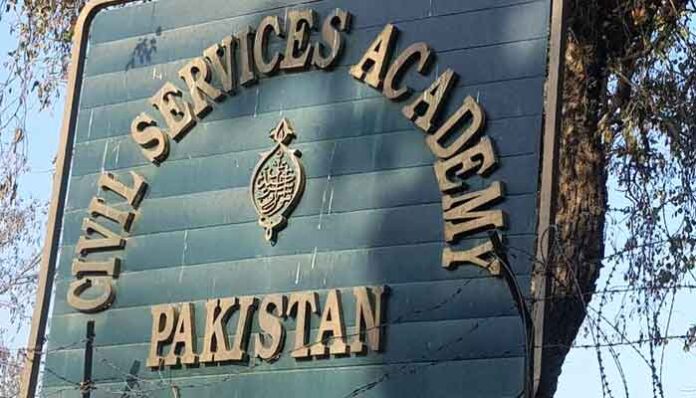The British left the subcontinent but passed on their legacy of bureaucratic structures to an already subjugated and demoralized Pakistan, strangled by inferiority complex and class consciousness. The central superior services (CSS) and the mechanism to get selected for these is one of the leftovers of the colonizers, who themselves moved on and rose beyond the barriers of monarchy and centralized power structures, making themselves one of the most formidable nations till date.
Last week, the entire Pakistani social media was filled with hashtags of MPT and CSS2022. Some even mocked the exaggeration and hype created around the test by those who have already made it to the services and those who await a bright future after spending a year or more on its preparation. The unfortunate part in all this is that many fresh graduates of various specialized fields aim to appear in the exam before considering a career in their respective fields. This creates an eerie sense of missing out among those who are happily settled in their choice of careers.
The exam and what follows after one’s selection all seems to be a farrago of half-baked ideas. For instance, an engineering graduate gets allocated into Pakistan Administrative Services (PAS), one of the most prestigious groups. Kudos to the candidate for studying the subjects he/she has never studied before and eventually passing the exams with flying colors, but the problem here lies not with an engineering graduate leading the administrative matters of the district, but in the fact that the very process of getting into the service is faulty and tedious. Skilled individuals of a certain field study new subjects just for the sake of passing the exams and getting allocation in a completely alien group. All of which is for the sake of serving in the country’s ‘elitist’ workforce.
There is yet another dark aspect of this whole process: the failure in the exam affects many aspirants’ mental health. Many of them avoid talking about the whole experience due to the social stigma and peer pressure. While some, on the other hand, become exam experts and help the prospective candidates through whatever insight they have gained during the whole process. The mental health issues exacerbate as well when the aspirants who fail the exam look at their social media newsfeed and see the statuses and tweets brimming with grandeur by those who pass the exams and get their desired allocations.
The fundamental faults with this exam could be addressed categorically: the foremost thing, in that case, would be to rephrase the name itself. Why call something ‘superior’ when, in no way, it can be proven that this exam is the ultimate yardstick to measure someone’s intellectual and professional capabilities. Maybe reducing it simply to ‘civil service exam’ would suffice to destigmatize the apparent pomp built around its very idea. Secondly, instead of making a good chunk of the young population apply for the exam and then getting people allocated into groups, it would be more apt if the same allocations are done through customized exams for each department/group. Thirdly, the chief dependence of candidates on fluent and bombastic English (as demanded by most of the examiners and moderators) must be discouraged and measures should be taken to cater to the linguistic needs of those who did not study in upper-crust English medium institutes.
No doubt, the exam itself requires comprehensive study and grit of steel if one is to pass it, but the social stigma that prevails after one fails it must be discouraged at all levels. The young people also need to understand that the sheer goal of passing CSS and having a lavish lifestyle as a civil servant undermines the spirit of public service as a whole. There are many other ways to excel if one is to serve his/her country and CSS just happens to be one of those, not the only one.




